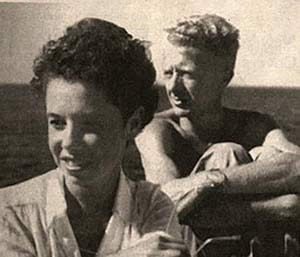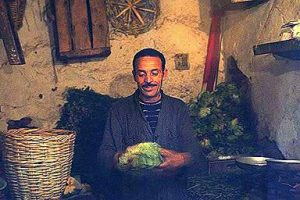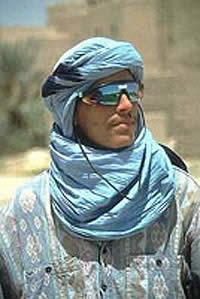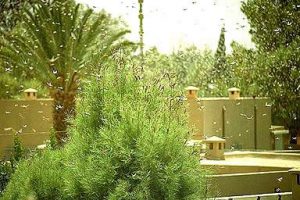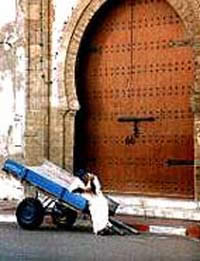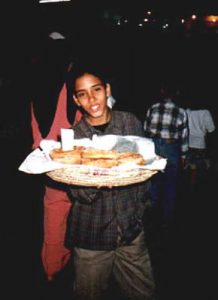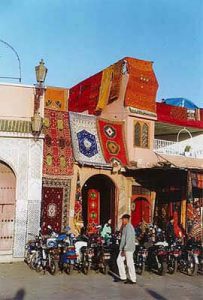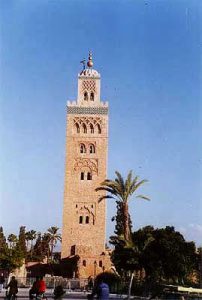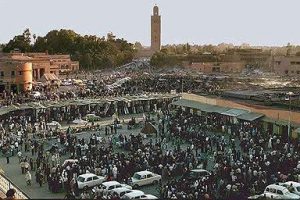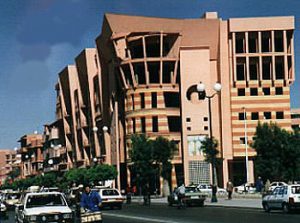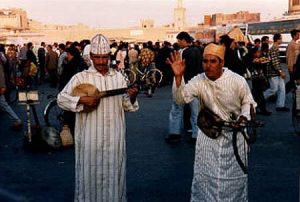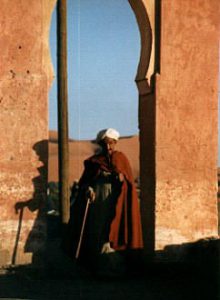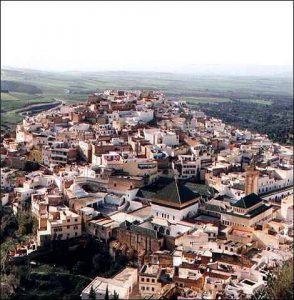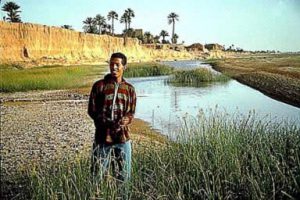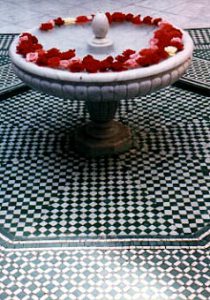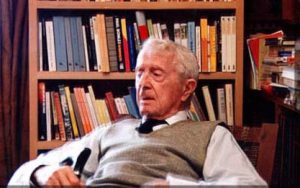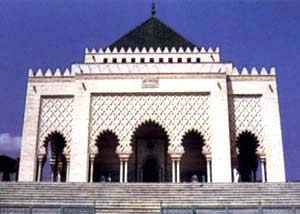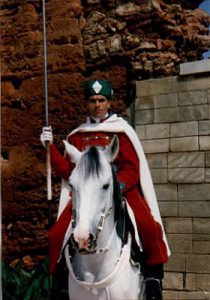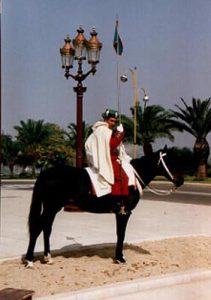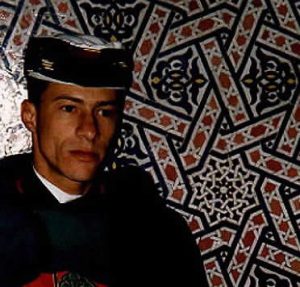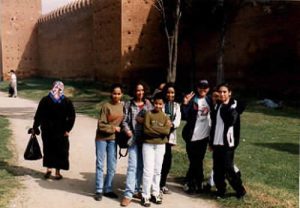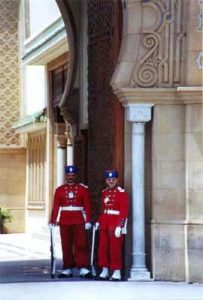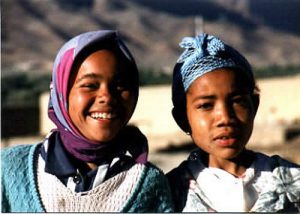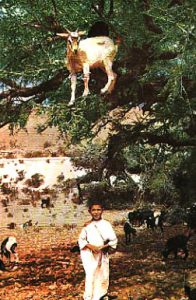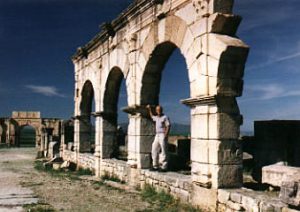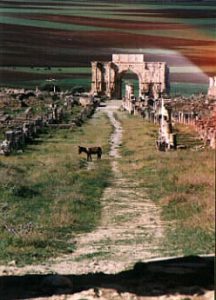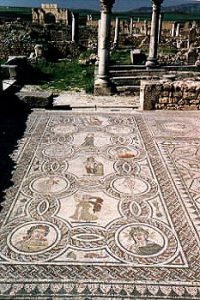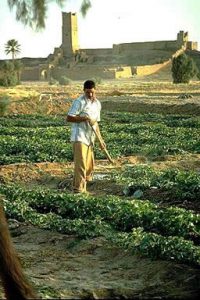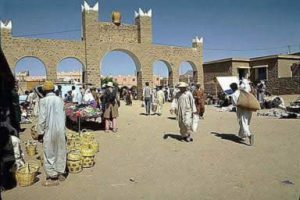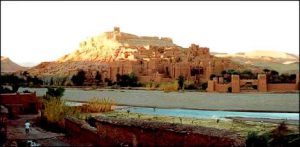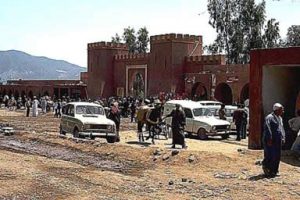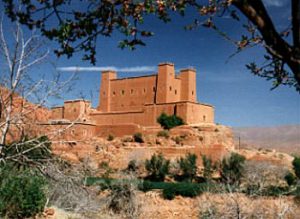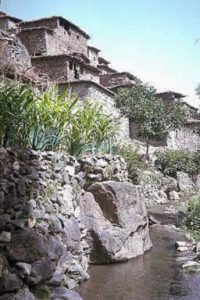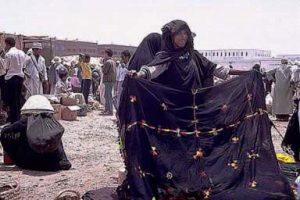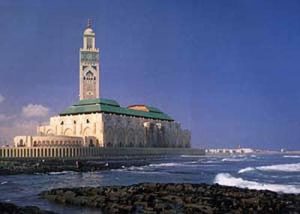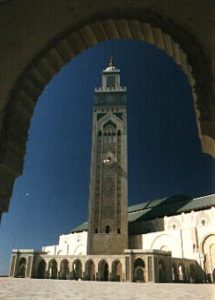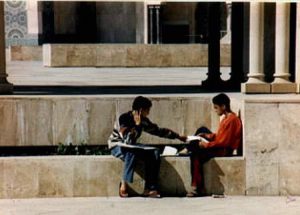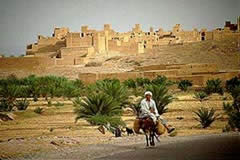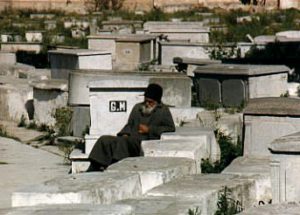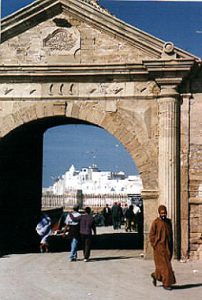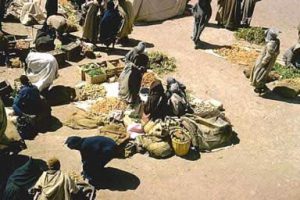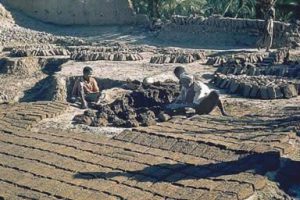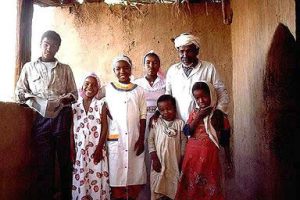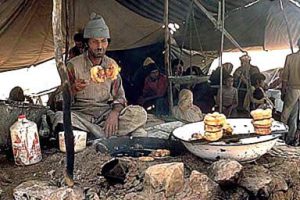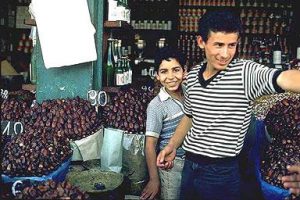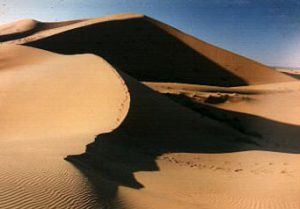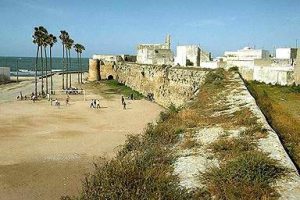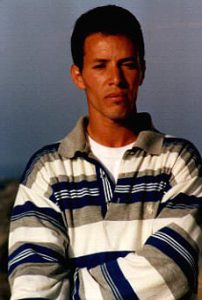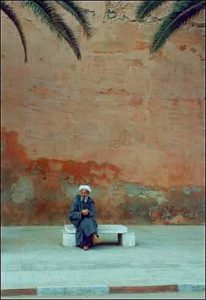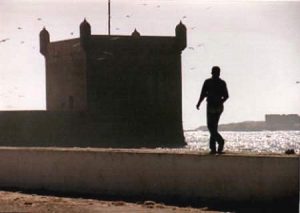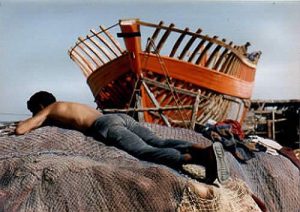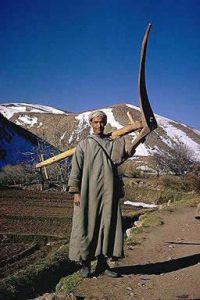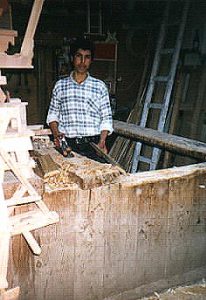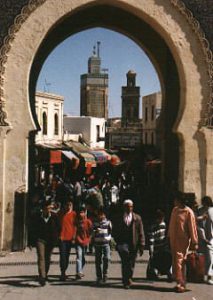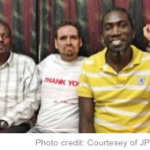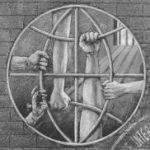A cross-country trip in rented car took us across the land from Casablanca to the capital Rabat, to the Sahara and back to Roman Volubilis. Morocco is color, sand, history and drama.
On November 18, 2006, Morocco celebrated the 50th anniversary of its independence from France. Hassan II became King of Morocco on March 3, 1961. His early years of rule would be marked by political unrest. The Spanish enclave of Ifni in the south was reintegrated to the country in 1969. Morocco annexed the Western Sahara during the 1970s after demanding its reintegration from Spain since independence, but final resolution on the status of the territory remains unresolved. Political reforms in the 1990s resulted in the establishment of a bicameral legislature in 1997. Morocco is the fifth economic power of Africa after South Africa, Egypt, Algeria and Nigeria. The present king is King Mohammed VI, born in 1963. He ascended to the throne in July 1999 following the death of his father King Hassan II.
Many new laws and codes concerning all aspects of family life and human rights are being or have been passed, most notable of which was the creation of the Mudawana— a family code which represented the first unique initiative of its kind in the Arab and Muslim world. The code gives women more rights. Other issues such as the abolition of capital punishment and the reform of the Moroccan nationality law are being debated.
But homosexuality in this Muslim monarchial state is still illegal and gay rights activists operate underground. Nevertheless, there is quite a large gay scene, much of which revolves around the European expatriate community, especially in Marrakech and – to a lesser extent – Agadir and Tangier. In many situations, the expatriates will "keep" a young Moroccan. Police have been known to arrest Moroccans seen walking with Europeans late at night on charges of prostitution, with no penalties for the European.

